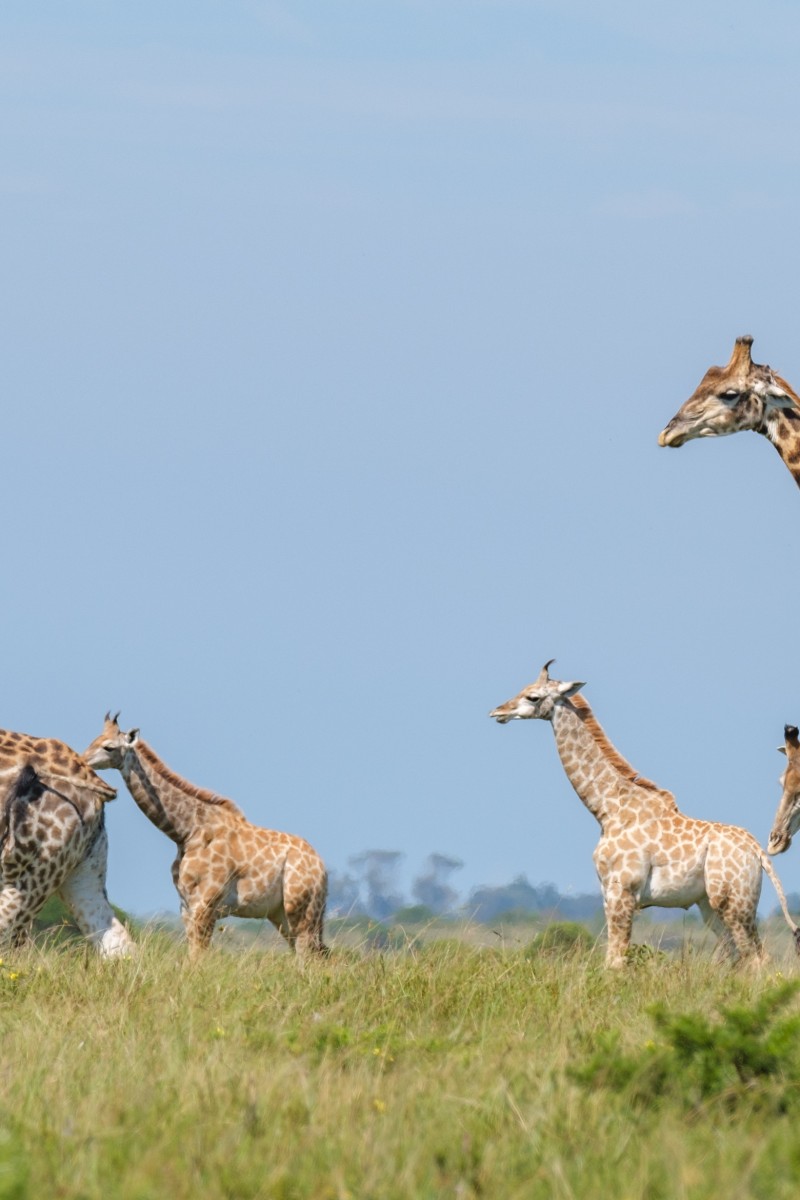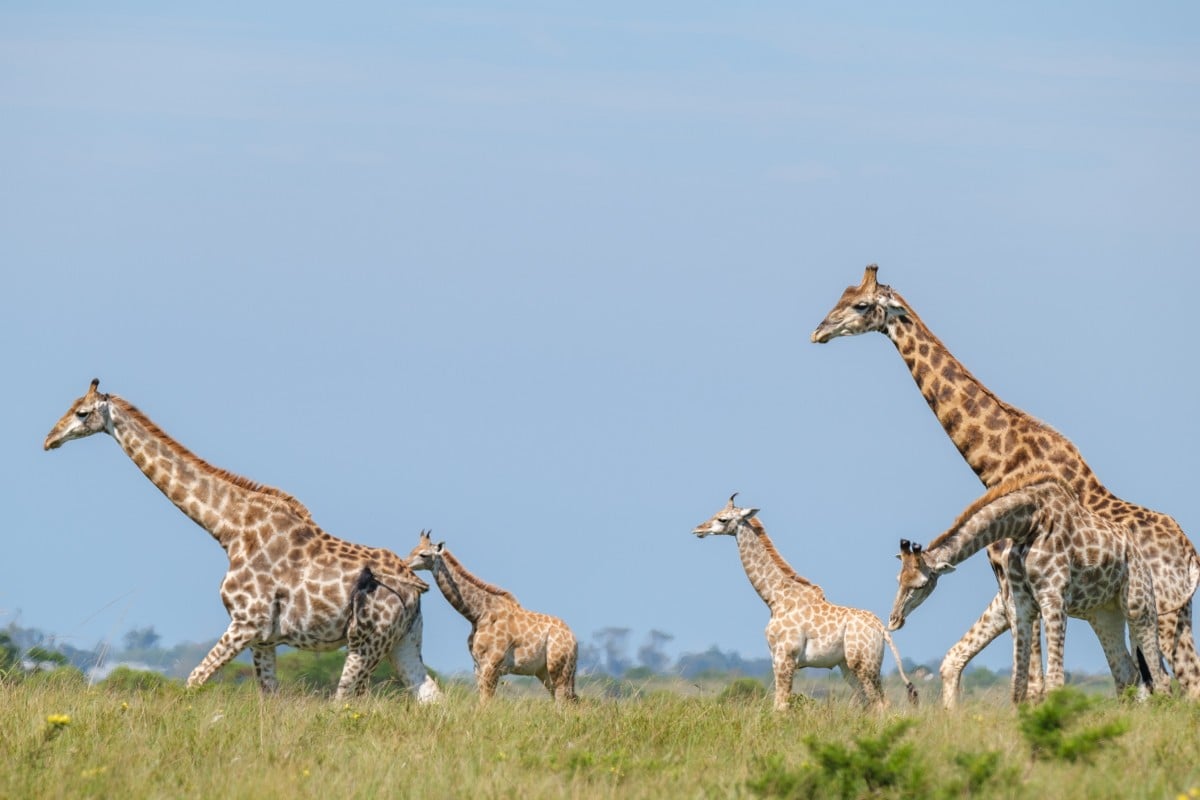
Giraffe gives birth to twins at Nairobi park as species struggles to survive
- A Maasai giraffe gave birth to a set of twins in what the park workers termed as a rare spectacle
- Only about 117,000 giraffe remain in the wild, according to the Giraffe Conservation Foundation
 There have only been a small number of twin giraffe births documented across the world. Photo: Shutterstock
There have only been a small number of twin giraffe births documented across the world. Photo: ShutterstockRare twins have been born to a Maasai giraffe in Nairobi’s national park, the Kenyan wildlife minister said Tuesday.
“This is an extremely rare occurrence,” Najib Balala said on Twitter in a post accompanied by a picture of the mother watching over her offspring.
The world’s tallest species was listed as “vulnerable to extinction” on the International Union for Conservation of Nature’s 2016 Red List of threatened wildlife.
Orphaned squirrel forms unbreakable bond with the man who raised him
Only about 117,000 giraffe remain in the wild, according to the Giraffe Conservation Foundation. It said the numbers of the gentle long-necked giant in Africa have plummeted by 30 per cent over the last 30 years, describing it as a “silent extinction”.
Kenya is home to three subspecies of giraffe, the Maasai, the reticulated and the Rothschild.
Nairobi National Park lies just seven kilometres (four miles) from the heart of the Kenyan capital, and is a tourist magnet for its wildlife including lions, leopards, rhinos and buffaloes which graze against a backdrop of distant skyscrapers.
At 15 months, giraffes have one of the longest gestation periods for mammals. They give birth standing up, which means their calves drop just under two metres (six feet) to the ground.
This startling introduction to life gets them up and running around in less than an hour. A newborn calf is bigger than the average adult human. Only a handful of twin births have been documented worldwide with most often not surviving.
In the wild, giraffes can live up to 25 years, while in captivity they can survive more than 35 years.